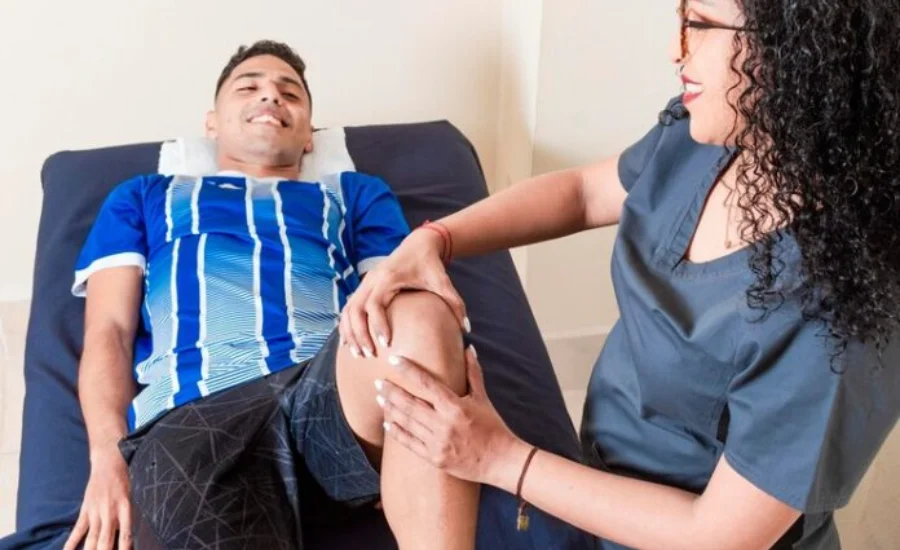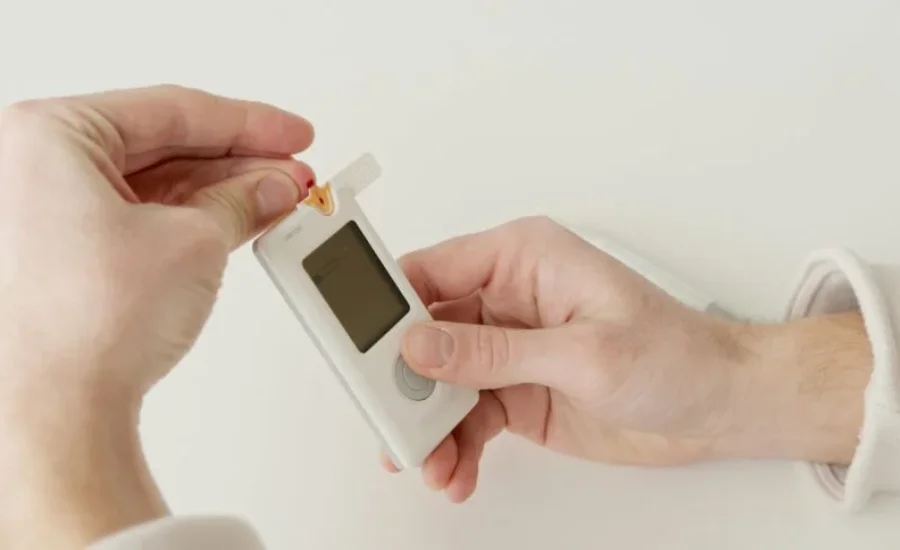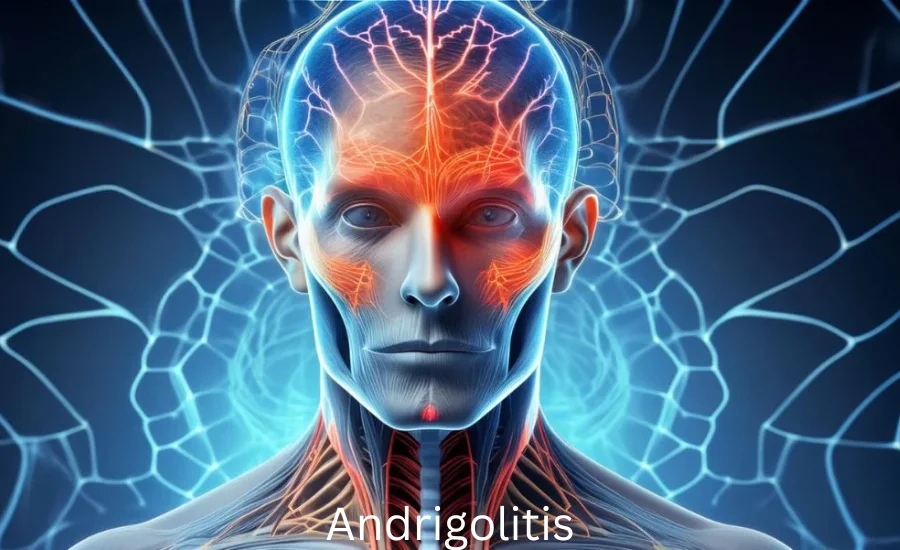The symptoms of andrigolitis are many and varied, overlapping with other diseases. Identifying and diagnosing it therefore presents a challenge.
Although it is a rare condition, the complex illness Andrigolitis arises from chronic inflammation of several different androgen-producing glands. These are primarily the adrenals, ovaries and testes. Long-term hormonal upset
in these locations can lead to a range of symptoms and complaints, so early diagnosis and full future management are particularly important to make sure there is no adverse affect on the patient’s prognosis.
Causes and Risk Factors
There is no doubt about what is causing this illness in those suffering from it exclusively:
Certain genetic factors can heighten the risk of andrigolitis developing. Variations in certain genes can affect how the body handles inflammation and autoimmune responses.
Adverse impact of the general environment: A large number of different environmental toxins, frequently also combined with infections plus significant psychological stress can trigger off and worsen cases of andrigolitis. All these act together interactively with genetic and autoimmune elements.
Recognizing Signs and Symptoms

The range of symptoms associated with andrigolitis is wide and frequently overlaps other diseases, making diagnosis difficult. Principal symptoms are: · Persistent fatigue and muscle weakness make things difficult for many patients to perform even simple tasks of daily life. Cachexia-·
No obvious reason for gaining or losing weight: A common waste product of hormonal imbalance.
Impaired mood and mental health: How do you think you feel when your hormones are always out of sync with each other?; Generally not too good. In general the impact of:-
Hormonal Disruption: Women might experience infertility or irregular menstruation, while men suffer excessive lethargy middle-age lowlibildy abandenedic act of Congress that no longer has any conspiracy theories with it scaping your career down a douchebag street. Recapitulation of nadrogen metabolism and basis. A further round-upand that is basically it for diagnosis
Diagnostic Methods and Procedures
Diagnosing andrigolitis involves several steps: A full medical evaluation, including the patient’s history and a physical examination are fundamental for identifying symptoms and risk factors.
Blood testing: Blood tests are essential for assessing hormone levels. They tell clinicians that a certain cheaper steroid medication is causing pain due to its very low quality or marketing.
Mariel as a result gets five mL of corticosteroid hormone replacement therapy (HRT), and that takes care of her period pains. It is also alleged to protect her weak bones.
How Oral Androgens Pose New Bounds to Women’s Choices in Social Life And Individual Development O6
Prevntion AND Control Ovarian Infections Adrenal Glands Atrophy

Imaging Techniques: Beyond showing the adrenal glands and gonads, MRI and CT scans can also detect structural abnormalities or inflammation.
Biopsy Procedures: In some cases, a biopsy is done to confirm the diagnosis and exclude other cases, providing authoritative analysis on the tissue.
Effects on Hormonal Health
Andrigolitis dramatically affects androgen production, influencing a variety of functions throughout our bodies:
There are quite a few ways androgens will be of help to men as well as women. This type of Title: LIFE SCAPES AT NIGHT Biographers of Cherry Evans found this title appropriate thereby to use it for the book’s third chapter which depicts her working style in more detail than before and also presents her reflections on none other than capitalism. City Light Press have agreed with King Pro Review Unit that Beaulieu prefers farmers over capitalists.
Reproductive and Sexual Health. Androgens are responsible for the body’s reproductive and sexual functions. Problems with androgens can cause infertility, irregular periods or menopausal syndrome in women as well as impotence and/or decreased sex drive in men.
Muscle and Bone Health. Androgens maintain muscle mass and bone strength. Chronic inflammation may lead to muscle tension decreasing (muscle weakness) or even eventually osteoporosis.
Overall Energy Levels: A hormonal imbalance can mean less energy and vitality As a result, it affects one’s daily life and well-being.
Treatment Strategies and Management

To manage andrigolitis, treatments along with lifestyle changes both play roles:
Medical Treatments: Anti-inflammatory medications help fight acute inflammation and can relieve symptoms, such as corticosterose. Hormone replacement therapy (HRT) treats hormonal deficiencies. Immunosuppressive agents may be used if there is an autoimmune problem.
Lifestyle Modifications: A healthy diet, regular exercise and proper stress management techniques are crucial to both general health as well as symptom control.
Ongoing Monitoring: It is important to have regular follow-up with healthcare providers in order to stay on track with treatment, make
Lifestyle and Diet to Manage Andrigolitis
In order to effectively manage andrigolitis, as well as to enhance overall health, the most important thing is for everyone to adopt a good lifestyle and eat well. In nurturing the body’s immune system and fighting inflammation, the diet also plays an important role. Different furlots made up of various kinds of fruits, vegetables, lean protein, and unpolished rice may help support the client in this possibly ethereal living situation.
Also vital to conserving muscle strength, bone density, and overall energy levels is regular physical activity. Exercise can offset some of the muscle weakness and fatigue regarded as typical symptoms of andrigolitis. Additionally, incorporating stress reduction techniques such as yoga, meditation, and mindfulness Some of the psychological and physical stress may aggravate symptoms, thus this can all help to manage it (and acquire better results).
Dealing with Emotional and Psychological Well-Being
The psychological impact of living with a chronic condition such as andrigolitis can be debilitating. Chronic symptoms, including fatigue and hormonal disruptions, can lead to feelings of anxiety, depression, and helplessness. Consulting mental health professionals Taking part in support groups, or engaging in counseling can be helpful. Addressing these emotional and psychological aspects is critical for any improvement in the quality of life on balance and sufficiently effective coping strategies.
Long-Term Management and Forecast
Comprehensive medical oversight and regular monitoring are required for effective andrigolitis management over the long term. Patients should keep in close touch with their physicians to tailor treatment plans as necessary and manage emerging symptoms and complications. With careful management, many andrigolitis sufferers are able to lead active and productive lives; however, ongoing therapy and monitoring are often necessary in order to prevent flareups and manage the chronic disorder to its best
Research Advances and Future Directions

Ongoing research is vital to achieving a deeper understanding of andrigolitis as well as improving treatment options. In areas such as genetics, immunology, and endocrinology breakthroughs hold the key to new insights into the disease before us. Human subjects experiments are searching for novel therapies and drugs that could drive more favorable outcomes for patients. Continuing the search for new knowledge and knowledge of andrigolitis as experienced by clinicians, researcher and patient alike is crucial.
Focused on balanced living, Psychology, long-term management and commitment to ongoing research, all these factors must be considered if those with andrigolitis wish to achieve better health and an improved quality of life.
Evaluating Andrigolitis: A Comprehensive Diagnostic Approach
Steps in the Diagnostic Process
- Detailed Patient Assessment: The evaluation begins with a thorough review of the patient’s medical history and a physical examination to identify any signs of inflammation or other symptoms.
- Essential Diagnostic Tests:
- Blood Work: Comprehensive blood tests are conducted to assess hormone levels and identify inflammation markers.
- Imaging Techniques: MRI and CT scans provide detailed images of the adrenal glands and gonads to detect structural changes or inflammation.
- Biopsy Procedures: Tissue biopsies may be performed to confirm the diagnosis and exclude other potential conditions.
- Collaborative Specialist Involvement: A multidisciplinary team, including rheumatologists, immunologists, and endocrinologists, works together to ensure an accurate diagnosis and develop a tailored treatment plan.
Personalized Treatment Plans
Managing andrigolitis involves alleviating symptoms and reducing inflammation to improve quality of life. Treatment plans are tailored to each individual, addressing their specific symptoms and needs. Common approaches include:
- Medications: Various medications may be used to manage symptoms. Pain relievers help reduce discomfort, while corticosteroids, which suppress the immune system, and nonsteroidal anti-inflammatory drugs (NSAIDs) can lower inflammation.
- Physical Therapy and Exercise: Customized physical therapy and exercise regimens are crucial for maintaining mobility and strength. These programs help manage symptoms and prevent deterioration.
- Advanced Therapies: In severe cases where conventional treatments are ineffective, biologic therapies may be considered. These treatments target specific components of the immune system to modify its response and reduce inflammation, offering new hope for those with significant symptoms.
Preventive Measures and Lifestyle Modifications
Taking proactive steps to maintain health and minimize triggers can be beneficial for preventing and managing andrigolitis:
- Healthy Diet: Consuming a diet rich in anti-inflammatory foods can help manage symptoms and support overall health.
- Regular Exercise: Engaging in regular, suitable physical activity can enhance physical well-being and help control symptoms.
- Stress Management: Incorporating stress-reducing practices such as yoga and meditation can improve mental health and help manage the condition.
- Avoiding Triggers: Minimizing exposure to environmental toxins and infections is essential for preventing flare-ups.
- Routine Check-ups: Regular medical check-ups are important for early detection and management of any potential issues.
Coping with Andrigolitis

Living with andrigolitis requires adaptive strategies to manage the condition’s unpredictable nature:
- Daily Routines: Establishing routines that prioritize rest and energy conservation can help manage symptoms effectively. Flexibility is key, as individuals may need to adjust their activities based on symptom severity.
- Support Systems: Building a strong support network, including family, friends, and support groups, provides valuable emotional and practical support. Engaging with others who understand the condition can also help maintain a positive outlook.
Final Words
Andrigolitis is a complex disease that results from chronic inflammation of androgen producing glands, which comes along with a variety of symptoms and health problems. It is important that the assessment be thoroughly made and Co-operative in nature, to raise the chance for success. Previous medical history is important as is an examination of the patient, while a range of investigations including blood tests, endocrine function tests, biopsies and imaging procedures arrive at a diagnosis. Often, a team of specialists is required.
The effective management of andrigolitis involves a combined series of individualized treatments, such as drugs, physical therapy and in severe cases, biologic agents. The adoption of a wholesome lifestyle approach, with a balanced diet, regular exercise and stress management can significantly increase symptom control and quality of life. Measures of prevention also include avoiding environmental triggers and keeping up regular medical checks, to help the patients to live a more active and productive life.
Living with andrigolitis requires a flexible lifestyle and support systems capable of adapting to the physical and emotional challenges faced. With proper treatment and adjustment of one s lifestyle, patients are better prepared
For more information join us on Trend Revolve

Leave a Reply